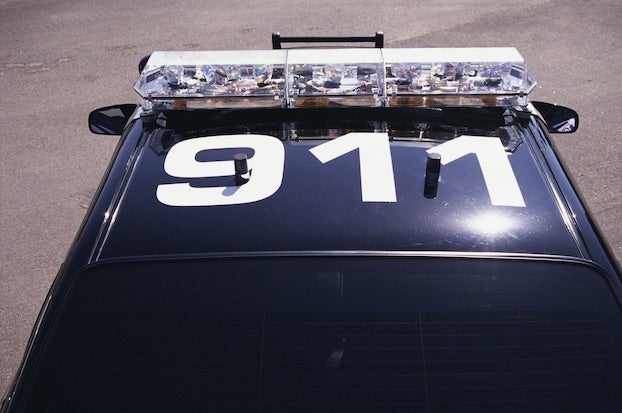Jim Beam column:Open primaries helped GOP
Published 6:31 am Wednesday, October 11, 2023

- The beginning of open primary elections in Louisiana also marked the beginning of the rise of the state's Republican Party.(Photo courtesy of KSLA News 12)
Change isn’t a strong enough word to describe the Louisiana of today to what it was like 50 years ago. When I registered to vote many years ago, you had to register as a Democrat or you didn’t have many opportunities to vote.
Democratic politicians used to make jokes about there being so few Republicans in the state that they could hold their party conventions in a telephone booth.
Tell that joke today and people would probably ask, “What is a telephone booth.”
The late-Jerry Doty, one of Louisiana’s best known political historians, wrote a series of articles for the American Press in 1990. He described Calcasieu Parish as a Democratic bellwether state because the way people in this parish voted was pretty much the way the rest of the state voted.
Doty also wrote, “In the mid-1950s, there were two rules of Louisiana politics that had not been broken since the 1920s — to be elected governor, you could not be Catholic or from New Orleans.”
At that time in this state’s history, the same thing could have probably been said about being a Republican.
Democrat Edwin W. Edwards, a Catholic, broke the first rule in 1971, Doty said, and in 1990 the second rule remained unbroken.
The first serious Republican competition for governor came in the March 3, 1964, general election when Democrat John J. McKeithen defeated Republican Charlton H. Lyons Sr. of Shreveport. McKeithen had 52.2% of the vote to 47.8% for Lyons.
The Associated Press said of McKeithen, “The 45-year-old country lawyer bumped into the most powerful Republican uprising in this traditionally Democratic state in nearly 100 years.”
Lyons said, “A new force — a two party system — has emerged in Louisiana and it is here to stay.” No truer words were ever spoken as far as state politics is concerned.
A Wikipedia report said McKeithen seemed bitter that he had to face a strong Republican candidate after struggling through two hard-fought Democratic primaries. Edwin W. Edwards felt the same way after he won the 1971 governor’s race.
That is why Edwards backed the state’s change to the current open primaries where candidates from all parties run at the same time. If no one wins a majority, the top two finishers are in a runoff or general election.
Edwards, and perhaps even Republicans, apparently didn’t realize at the time that open primaries would lead to strong GOP competition in state elections.
When Republican Dave Treen was elected governor in 1979, he became the state’s first GOP governor since Reconstruction. That was the period (1865-77) after the Civil War when vindictive Radical Republicans held political offices in the South.
The “Citizen’s Guide to the 1972 Louisiana Legislature” said, “One of the significant changes in the membership has been the election of four Republicans and eight Blacks to the House of Representatives.”
By 1996, there were 26 Democrats and 13 Republicans in the Senate and 78 Democrats and 27 Republicans in the House.
In 2010, there were 23 Democrats and 16 Republicans in the Senate. Each major party had 50 members in the House and there were 3 independents. The decisive year for Republicans came in 2011 when they held 22 seats in the Senate to 17 for Democrats. There were 53 Republicans in the House (a majority), 46 Democrats and 4 independents.
A major vehicle for making dramatic changes for Republicans was former U.S. Sen. David Vitter’s Fund for Louisiana’s Future. Vitter created the fund for his 2015 campaign for governor, an election he lost to current Democratic Gov. John Bel Edwards.
Biz New Orleans reported in 2016 that Louisiana state Attorney General Jeff Landry, the current frontrunner for governor, was taking over Vitter’s Louisiana Committee for a Republican Majority, which was created to elect more GOP conservatives to state legislative offices.
9WAFB in Baton Rouge reported on March 17 this year that longtime Democratic state Rep. Francis Thompson of Delhi became a Republican to give the GOP a supermajority of 70 (two-thirds) in the House. The Senate already had 27 Republicans, one more than the supermajority (26) it needed.
Southwest Louisiana now has 4 senators and 9 representatives and only one of the 13 is a Democrat. Yes, change isn’t a strong enough word to describe what has happened to a one-time heavily Democratic Louisiana.
| ReplyForward |





